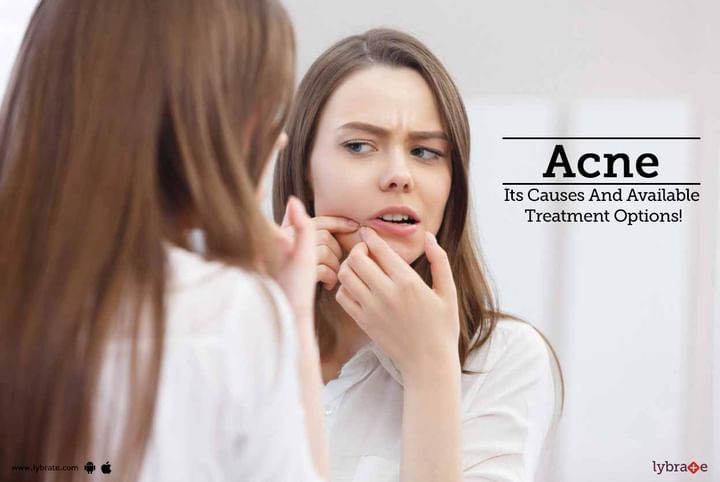Acne - Its Causes And Available Treatment Options!
A skin condition that is quite common in adolescence is acne. The term acne refers to a skin condition where the hair follicles become clogged with oil from the skin and the dead skin cells, resulting in blackheads, whiteheads, and bumps that are commonly called pimples.
Often referred to as acne vulgaris, this skin condition is characterized by oily skin and scarring that the pimples left behind. Though usually common in young adults and teenagers, acne is a long-term skin disease that can affect anyone.
Causes-
A number of reasons can be responsible for acne invasion. Here are some of the most common causes:
- Excessive oil production: The skin on the shoulders, face, and neck has the maximum oil glands present. Therefore, excessive oil production of these glands leads to pore clogging, increasing the chances of having acne.
- Skin irritation: Sometimes, skin irritation can also lead to acne invasion. From prolonged exposure to the sun to pressure on the skin, for example, holding a mobile against the face or wearing tight clothes, or applying makeups consisting harsh chemicals can trigger this skin problem.
- Hormonal imbalance: The sex hormones being responsible for the sebum production of the skin, disturbances of the same during due to puberty, pregnancy, menstruation or due to any other health conditions can also make the acne appear.
- Medications: Use of certain skin creams or oral medications containing lithium or corticosteroids can also lead to causing acne.
Treatment
The following are the treatment options available for treating acne problem.
- Oral medications: Antibiotics, anti-androgen agents, oral contraceptives, and isotretinoin are some of the medication types that are used to prevent acne and to treat existing acne-prone skins.
- Topical medications: Topical medications are the most common form of treatment options for dealing with acne. After analyzing the skin condition, skin creams or ointments are prescribed that helps in reducing plugging of the hair follicles which leads to acne.
- Skin therapies: Depending on the skin type and the severity of acne, there are various therapies available that can cure acne. From chemical peels to steroid injections, photodynamic and laser therapies and extraction of whiteheads and blackheads are there to be used alone or in a combination with other treatment methods. When the hormonal imbalances are responsible for acne, hormone therapy may be used as a reliable acne treatment.
- Self-care: A few good practices such as protecting the skin from excessive sun exposure and avoiding picking or touching the acne-prone skin area can help in managing and controlling the condition.
Acne can affect facial skin, skin on the back, chest, and the shoulders, and can result in white or dark spots and scars on the affected area. Often causing embarrassment and irritation, the condition, however, can be well-managed with help from your dermatologist.
In case you have a concern or query you can always consult an expert & get answers to your questions!



+1.svg)
